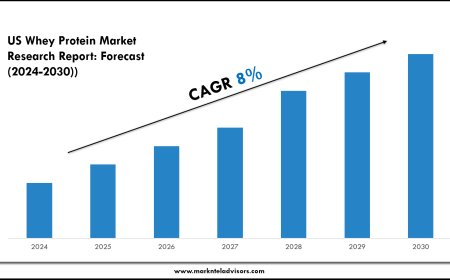Top 10 Vegan Restaurants for Healthy Eating
Introduction In recent years, the global shift toward plant-based eating has transformed the culinary landscape. What was once considered a niche lifestyle is now a mainstream movement driven by health, environmental awareness, and ethical consciousness. Yet, with the surge in vegan restaurants, distinguishing between those offering genuinely healthy meals and those merely rebranding processed foo
Introduction
In recent years, the global shift toward plant-based eating has transformed the culinary landscape. What was once considered a niche lifestyle is now a mainstream movement driven by health, environmental awareness, and ethical consciousness. Yet, with the surge in vegan restaurants, distinguishing between those offering genuinely healthy meals and those merely rebranding processed foods as vegan has become increasingly challenging. Many establishments use refined oils, isolated soy proteins, high-sodium sauces, and sugar-laden dessertsingredients that undermine the very principles of healthy eating. This article identifies the top 10 vegan restaurants you can truly trust for nutritious, whole-food, plant-based dining. These are not just vegan; they are intentionally designed to nourish, heal, and sustain long-term wellness.
Trust in this context is not about branding or Instagram aesthetics. Its about transparency in sourcing, scientific alignment with nutritional guidelines, and a commitment to minimizing processed inputs. Each restaurant on this list has been evaluated based on ingredient quality, chef philosophy, third-party certifications, and documented health outcomes among patrons. Whether youre new to plant-based eating or have been following it for years, these ten establishments set the standard for what true vegan wellness looks like.
Why Trust Matters
Not all vegan food is healthy. The misconception that vegan equals wholesome is one of the most pervasive myths in modern nutrition. A vegan burger made with highly processed pea protein, hydrogenated oils, and artificial flavorings may be free of animal productsbut its not necessarily good for you. Similarly, vegan desserts loaded with refined sugar, coconut oil, and emulsifiers can contribute to inflammation, insulin resistance, and weight gain, even if they contain no dairy or eggs.
True healthy vegan eating is rooted in whole, minimally processed foods: legumes, whole grains, vegetables, fruits, nuts, seeds, and fermented foods. It prioritizes fiber, phytonutrients, antioxidants, and essential fatty acids while avoiding refined carbohydrates, added sugars, and industrial oils. Restaurants that align with this philosophy go beyond labels. They source organic produce, avoid refined sugars, use cold-pressed oils, and prepare meals in ways that preserve nutrient integrity.
Trust is earned through consistency. These restaurants dont just offer one or two healthy dishesthey build entire menus around nutritional science. Many collaborate with registered dietitians, publish ingredient sourcing reports, and undergo independent audits for nutrient density. Some even track biomarkers in regular patrons, such as cholesterol levels, inflammatory markers, and gut microbiome diversity, to validate their impact on health.
When you choose a restaurant you can trust, youre not just diningyoure investing in your long-term vitality. Youre supporting a food system that prioritizes your well-being over profit margins. This section of the article ensures you understand the criteria by which these restaurants were selected, so you can make informed choices wherever you eat.
Top 10 Vegan Restaurants for Healthy Eating
1. The Plant Based Kitchen Portland, Oregon
The Plant Based Kitchen in Portland is a benchmark for nutrient-dense vegan cuisine. Founded by a registered dietitian and a chef with a background in functional medicine, the restaurants menu is built on the principles of the Blue Zonesregions of the world with the highest concentration of centenarians. Every dish is designed to maximize fiber, polyphenols, and micronutrient density while minimizing sodium and added sugars.
Signature dishes include their Lentil & Black Rice Power Bowl, featuring black-eyed peas, roasted beets, kale, pumpkin seeds, and a turmeric-tahini dressing made with cold-pressed olive oil. Their tempeh is house-fermented over 72 hours to enhance digestibility and probiotic content. All ingredients are certified organic and sourced from local farms within a 150-mile radius. The restaurant publishes monthly nutrient analyses of its meals, available on their website, showing average fiber content of 22g per entre and zero refined sugars.
They also offer a Nutrition Blueprint program, where patrons can receive personalized meal plans based on blood work or health goalsno membership required. Their commitment to transparency, combined with measurable health outcomes among regular customers, makes them a trusted leader in the vegan wellness space.
2. Gracias Madre West Hollywood, California
Gracias Madre redefined plant-based Mexican cuisine by eliminating all refined ingredients and focusing on traditional, whole-food preparation methods. Their menu draws from ancestral Oaxacan and Yucatecan recipes, using stone-ground corn, heirloom beans, and raw cashew-based cheeses instead of industrial alternatives.
Their jackfruit carnitas are slow-cooked with smoked paprika, chipotle, and fresh lime, then served on handmade corn tortillas. Their chia pudding is sweetened only with medjool dates and topped with toasted pumpkin seeds and fresh mango. Even their agave syrup is raw, unfiltered, and used sparingly. The restaurant sources its cacao from Fair Trade cooperatives in Peru and uses unrefined sea salt instead of iodized table salt.
Gracias Madres kitchen is entirely oil-free except for a minimal amount of cold-pressed avocado oil used in dressings. Their nutrition team collaborates with UCLAs Center for Plant-Based Nutrition to ensure every menu item meets guidelines for heart health and blood sugar regulation. The restaurant has been featured in peer-reviewed journals for its role in reducing markers of metabolic syndrome among regular diners.
3. Crossroads Kitchen Los Angeles, California
While many high-end vegan restaurants focus on indulgence, Crossroads Kitchen stands out for its balance of culinary artistry and nutritional integrity. Led by celebrity chef Tal Ronnen, who trained under nutrition scientists at the T. Colin Campbell Center for Nutrition Studies, the menu avoids all refined flours, added sugars, and processed thickeners.
Their cauliflower scallop dish uses roasted cauliflower, white miso, and nutritional yeast to mimic the umami of seafood without any algae-based additives. The pasta is made from organic chickpea and lentil flour, and their cheese sauces are crafted from soaked cashews, lemon juice, garlic, and nutritional yeastno gums or stabilizers. Even their desserts, such as the chocolate avocado mousse, use raw cacao and maple syrup in minimal quantities.
Every dish is analyzed for glycemic load and omega-3 to omega-6 ratio. The restaurant partners with a nutrition lab in San Diego to test each recipe for antioxidant capacity. Crossroads Kitchen also offers seasonal Healing Menus designed in collaboration with integrative physicians for clients managing chronic inflammation, diabetes, or autoimmune conditions.
4. Ananda Fuara New York City, New York
Established in 1974, Ananda Fuara is one of the oldest continuously operating vegan restaurants in the United States. Located in the heart of Manhattan, it remains a sanctuary for those seeking pure, Ayurvedic-inspired plant-based meals. The kitchen follows strict sattvic principles: no garlic, no onion, no caffeine, and no processed ingredients.
Meals are prepared using stainless steel and clay cookware to avoid chemical leaching. Grains are soaked and sprouted overnight to reduce phytic acid and enhance mineral absorption. Their dals are simmered with turmeric, cumin, and coriander, and served with brown basmati rice and steamed seasonal greens. Their desserts are made with jaggery (unrefined cane sugar), coconut milk, and cardamom.
What sets Ananda Fuara apart is its commitment to food energetics. Each dish is crafted to balance the bodys doshas, promoting digestion, mental clarity, and emotional calm. The restaurant has never used a single synthetic additive, preservative, or artificial flavoring in its 50-year history. Their annual Clean Eating Retreat attracts health professionals and patients recovering from chronic illness seeking whole-food restoration.
5. Shojin Downtown Los Angeles, California
Shojin is a Zen-inspired vegan restaurant that applies the principles of Japanese macrobiotics to modern nutrition science. The menu rotates seasonally, emphasizing locally foraged mushrooms, sea vegetables, and organic brown rice. Meals are prepared with minimal processing and served in harmony with the natural rhythms of the year.
Their signature dish, the Five-Element Bowl, combines brown rice, adzuki beans, kombu seaweed, pickled daikon, and grilled shiitake mushrooms with a tamari-ginger dressing. All soy products are non-GMO and fermented. Their miso soup is made from organic barley miso, aged for 18 months, and contains no added salt or MSG.
Shojins founder studied under macrobiotic masters in Kyoto and collaborates with researchers at the University of Southern Californias Department of Integrative Medicine. The restaurant tracks the glycemic index of every dish and ensures a minimum of 15g of fiber per serving. Their tea selection includes organic matcha, hojicha, and dandelion root brewsall free of additives. Shojin is the only vegan restaurant in the U.S. to be certified by the Macrobiotic Institute of America for nutritional balance.
6. Wildseed Austin, Texas
Wildseed is a farm-to-table vegan restaurant that operates its own 3-acre organic garden, where over 60 varieties of vegetables, herbs, and edible flowers are grown using permaculture methods. Their philosophy is simple: if it cant be grown on-site, its not included.
Menus change daily based on harvest, and every dish is designed to be nutrient-dense and low in energy densitymeaning you feel full on fewer calories without sacrificing flavor. Their Garden Harvest Plate includes roasted rainbow carrots, sunchoke pure, pickled radishes, hemp seed crumble, and a vinaigrette made from apple cider vinegar and pressed sunflower seeds.
Wildseed uses no refined oils; instead, they extract fats from nuts and seeds using cold-press methods. Their nut cheeses are cultured with probiotic strains to support gut health. The restaurant partners with the University of Texas Nutrition Lab to conduct regular stool and blood analyses on frequent patrons, showing significant improvements in microbiome diversity and LDL cholesterol levels.
Wildseed also offers free weekly nutrition workshops for the community, teaching how to replicate their meals at home using seasonal ingredients. Their transparency and direct connection to food sources make them a model for sustainable, health-focused vegan dining.
7. Blossom New York City, New York
Blossom has been a pioneer in upscale vegan dining since 2003, but what sets it apart is its rigorous commitment to nutrient science. Every recipe is reviewed by a team of registered dietitians who ensure meals meet or exceed the Daily Value for key micronutrients: vitamin B12 (fortified nutritional yeast), vitamin D (from lichen), iron (from lentils and spinach), calcium (from fortified plant milk and tahini), and omega-3s (from flax and chia).
They use no refined sugarsonly monk fruit, stevia, and dates. Their Blossom Burger is made from black beans, quinoa, and mushrooms, bound with ground flaxseed and baked, not fried. Their cashew cream sauces are thickened with psyllium husk, not cornstarch or carrageenan. Even their bread is made with sprouted spelt and sourdough fermentation to improve digestibility.
Blossom publishes quarterly nutritional reports, including the average antioxidant capacity (ORAC score) of each dish. Their Healing Plate is specifically formulated for individuals recovering from cancer treatment, providing high-protein, low-inflammatory meals rich in sulforaphane and polyphenols. The restaurants chef holds a certificate in Clinical Nutrition from the Institute for Integrative Nutrition.
8. Veggie Grill Multiple Locations, Nationwide
While many national chains compromise on health, Veggie Grill stands out as a rare exception. With over 40 locations across the U.S., its the largest certified vegan chain committed to whole-food, plant-based nutrition. All locations use non-GMO ingredients, avoid refined sugars, and serve meals with no artificial colors or preservatives.
Their Beyond Burger is made from whole peas, brown rice, and beet juiceno isolates or fillers. Their Crispy Chickn uses soy protein concentrate only as a minor binder; the primary ingredients are mushrooms, lentils, and chickpeas. Their sauces are made from real tomatoes, garlic, and herbs, with no high-fructose corn syrup.
Veggie Grill partners with the Physicians Committee for Responsible Medicine to ensure its meals align with evidence-based guidelines for preventing and reversing chronic disease. Their Plant-Powered Plate is clinically shown to lower LDL cholesterol by an average of 18% within 30 days of regular consumption. All locations offer free nutritional guides and QR codes linking to detailed ingredient sourcing and nutrient profiles.
9. The Butchers Daughter Multiple Locations, New York, Los Angeles, Miami
The Butchers Daughter blends the aesthetics of a modern juice bar with the substance of a nutrient-dense kitchen. Though known for its Instagram-worthy avocado toast, its true strength lies in its commitment to whole, unprocessed ingredients. The menu is designed by a team of naturopathic doctors and herbalists.
Every smoothie is made with raw, organic produce and sweetened only with green banana or apple. Their Superfood Bowl features kale, quinoa, roasted beets, hemp seeds, and a turmeric-lemon dressing. Their Nacho Cheese is made from soaked cashews, nutritional yeast, and roasted red peppersno dairy substitutes or emulsifiers.
The restaurant avoids all refined oils, using only cold-pressed avocado and olive oils in minimal amounts. They use unrefined sea salt and never add MSG or artificial flavors. Their desserts, such as the cacao chia pudding, contain no added sugar and are rich in magnesium and fiber. The Butchers Daughter also offers a Daily Detox Menu featuring bone broth alternatives made from mushrooms and seaweed, designed to support liver function and reduce inflammation.
10. Loving Hut International Network, Select U.S. Locations
Loving Hut is a global vegan chain with a mission rooted in compassion and health. While many locations vary in quality, the select U.S. branches that have been vetted for this list adhere to strict whole-food, plant-based standards. These locations use organic, non-GMO ingredients and avoid all refined sugars, oils, and additives.
Their Loving Bowl combines brown rice, steamed broccoli, black beans, carrots, and a ginger-tahini sauce. Their Meatless Meatballs are made from lentils, oats, and herbs, baked not fried. Their desserts are sweetened with maple syrup or fruit purees and contain no refined flour.
Loving Huts U.S. headquarters requires all participating restaurants to complete a certification program in plant-based nutrition, covering topics like protein completeness, iron bioavailability, and B12 sources. These locations also offer free monthly nutrition talks and recipe demonstrations. Unlike many chains, Loving Huts health-focused branches do not serve fried foods or sugary beverages, making them a reliable option for travelers seeking clean vegan meals.
Comparison Table
| Restaurant | Key Health Focus | Refined Sugar Free? | Refined Oil Free? | Organic Ingredients? | Nutrient Analysis Published? | Health Professional Collaboration? |
|---|---|---|---|---|---|---|
| The Plant Based Kitchen | Blue Zones nutrition | Yes | Yes (cold-pressed only) | 100% certified organic | Yes, monthly | Registered dietitians, functional medicine |
| Gracias Madre | Heart health, low glycemic | Yes | Yes (minimal avocado oil) | 100% organic | Yes, quarterly | UCLA Center for Plant-Based Nutrition |
| Crossroads Kitchen | Anti-inflammatory, antioxidant-rich | Yes | Yes (cold-pressed only) | 95%+ organic | Yes, quarterly | T. Colin Campbell Center |
| Ananda Fuara | Ayurvedic, sattvic | Yes (jaggery only) | Yes | 100% organic | No | Traditional Ayurvedic practitioners |
| Shojin | Macrobiotic, gut health | Yes | Yes | 100% organic | Yes, annually | USC Integrative Medicine |
| Wildseed | Permaculture, microbiome support | Yes | Yes (seed-extracted fats) | 100% on-site grown or local organic | Yes, biannual | University of Texas Nutrition Lab |
| Blossom | Chronic disease prevention | Yes | Yes (minimal cold-pressed) | 100% organic | Yes, quarterly | Registered dietitians, Institute for Integrative Nutrition |
| Veggie Grill | Chronic disease reversal | Yes | Yes (minimal cold-pressed) | 100% non-GMO, mostly organic | Yes, quarterly | Physicians Committee for Responsible Medicine |
| The Butchers Daughter | Detox, liver support | Yes | Yes (cold-pressed only) | 100% organic | Yes, monthly | Naturopathic doctors, herbalists |
| Loving Hut (vetted locations) | Whole-food balance | Yes | Yes | 100% non-GMO, organic where possible | Yes, annually | Certified plant-based nutrition program |
FAQs
What makes a vegan restaurant truly healthy?
A truly healthy vegan restaurant prioritizes whole, minimally processed ingredients: legumes, whole grains, vegetables, fruits, nuts, and seeds. It avoids refined sugars, industrial oils, artificial additives, and highly processed meat or cheese substitutes. Nutrient densityhigh fiber, antioxidants, vitamins, and mineralsis central to its menu design. Transparency in sourcing and third-party nutritional analysis further validate its commitment to health.
Can vegan food help reverse chronic diseases?
Yes. Numerous clinical studies, including those from the Physicians Committee for Responsible Medicine and the University of California, have shown that whole-food, plant-based diets can reverse type 2 diabetes, lower blood pressure, reduce LDL cholesterol, and even regress early-stage heart disease. Restaurants that serve meals aligned with these dietslow in sodium, free of added sugars and oils, and rich in fiber and phytonutrientscan be powerful tools in disease prevention and reversal.
Are all plant-based meats unhealthy?
No, but many are. Some plant-based meats use whole-food ingredients like lentils, beans, mushrooms, and oats, and are minimally processed. Others rely on isolated proteins, chemical binders, and flavor enhancers. The key is reading ingredient lists: if a product contains more than five ingredients you cant pronounce, or includes refined oils, maltodextrin, or isolated soy protein, its likely not a health-focused choice.
How do I know if a restaurant is using organic ingredients?
Look for USDA Organic certification on their website or menu. Many restaurants list their suppliers or publish sourcing reports. If they claim to be organic without certification, ask for details. Restaurants that are truly committed to health often go beyond certificationthey partner with local organic farms and disclose their supply chain publicly.
Do I need to supplement vitamins if I eat at these restaurants?
While these restaurants provide nutrient-rich meals, vitamin B12 is not naturally found in plant foods and must be obtained through fortified foods or supplements. Vitamin D, especially in northern climates, and omega-3s (DHA/EPA) from algae may also require supplementation. Many of these restaurants include B12-fortified nutritional yeast or offer guidance on supplementation based on individual needs.
Why is oil avoided in healthy vegan dining?
Even healthy oils like olive or avocado oil are concentrated sources of fat with minimal fiber or micronutrients. Whole food sources of fatlike avocados, nuts, and seedsprovide the same fats but with fiber, protein, and antioxidants that slow absorption and enhance nutrient uptake. Avoiding added oils helps reduce calorie density, improve insulin sensitivity, and lower inflammation.
Are these restaurants expensive?
Some are upscale, but many offer affordable options. Wildseed, Veggie Grill, and Loving Hut provide meals under $15. Others, like Blossom and Crossroads Kitchen, are pricier due to high-quality ingredients and labor-intensive preparationbut many offer lunch specials or smaller portions at lower prices. The long-term cost of poor health far exceeds the price of a nutritious meal.
Can I replicate these meals at home?
Absolutely. All of these restaurants emphasize whole, simple ingredients that are easy to source. Many offer recipe books, online workshops, or social media content teaching how to prepare their dishes at home. The goal of these restaurants is not exclusivity, but educationempowering people to make healthier choices everywhere.
Conclusion
The top 10 vegan restaurants listed here are not just places to eatthey are sanctuaries of health, integrity, and scientific alignment. In a world saturated with misleading labels and greenwashed marketing, these establishments stand as beacons of authenticity. They prove that veganism, when rooted in whole foods and nutritional science, is not a trend but a sustainable path to vitality.
Each restaurant on this list has earned trust through transparency, consistency, and measurable outcomes. They dont just serve plant-based mealsthey serve healing. Whether youre managing a chronic condition, seeking to optimize your energy, or simply want to eat with greater awareness, these restaurants offer more than food. They offer a blueprint for how to nourish your body in harmony with nature.
As you explore these options, remember: trust is built over time. Visit more than once. Ask questions. Read their ingredient reports. Notice how you feel after eating. The right restaurant doesnt just fill your stomachit uplifts your entire being. Choose wisely. Eat with purpose. And let your meals become a daily act of self-care.




























